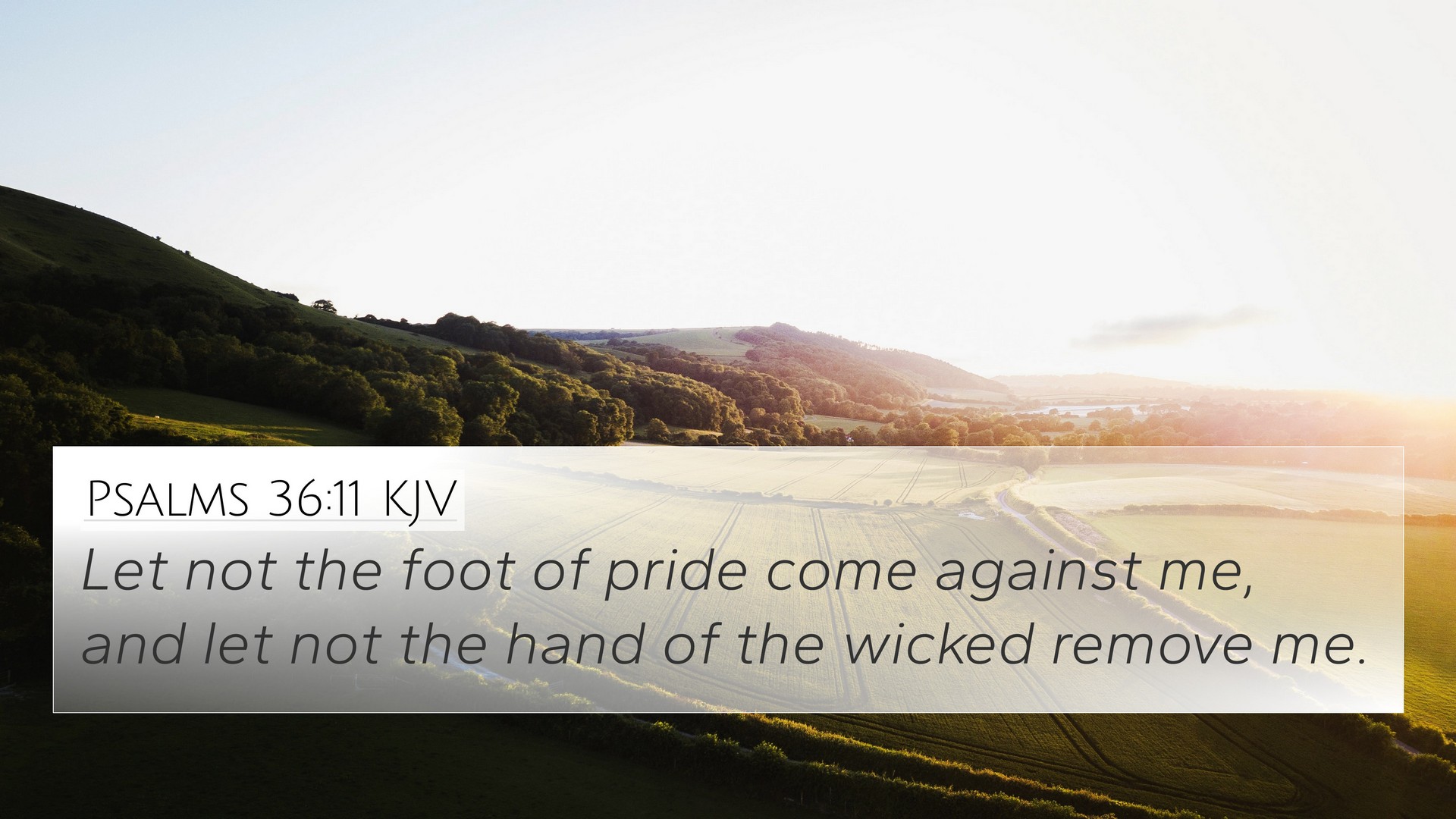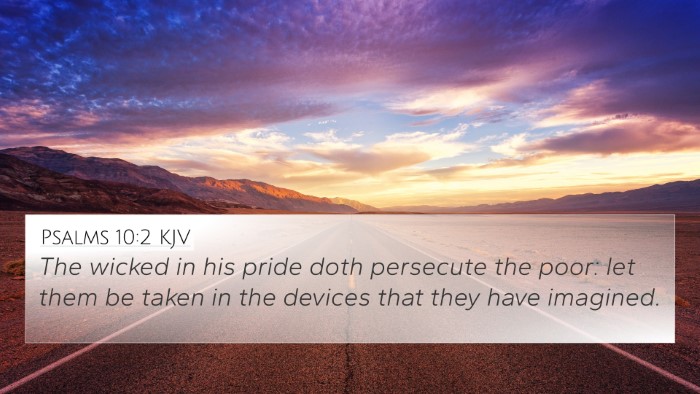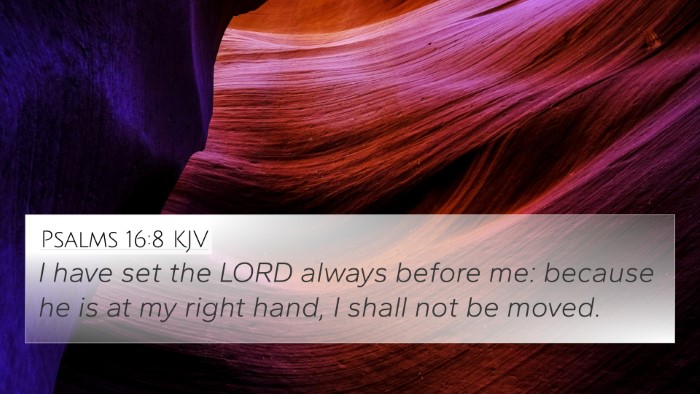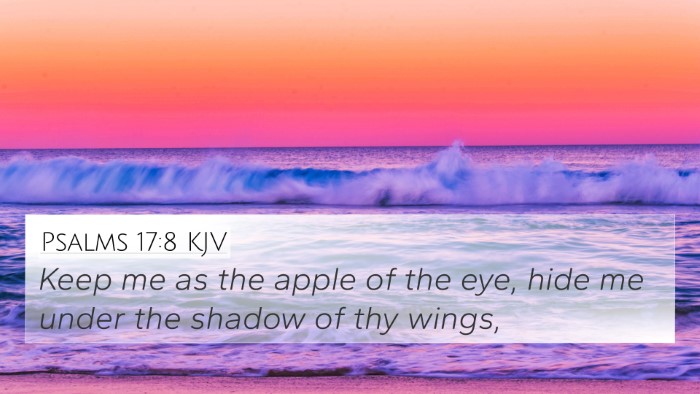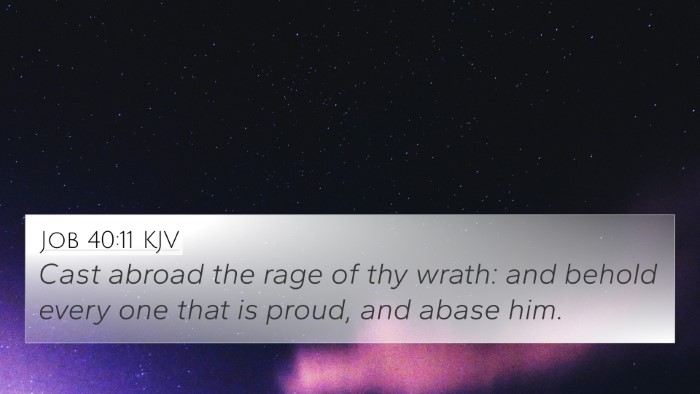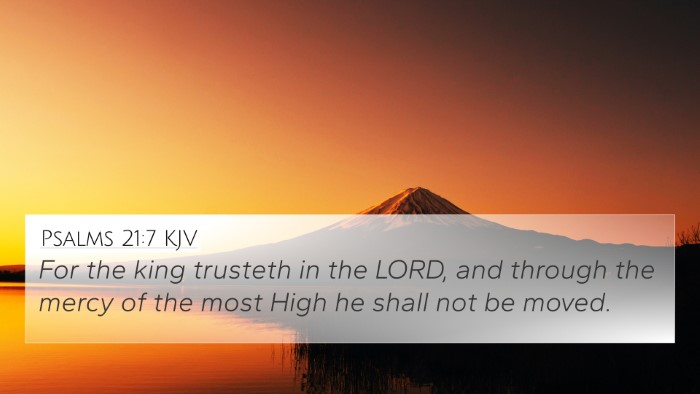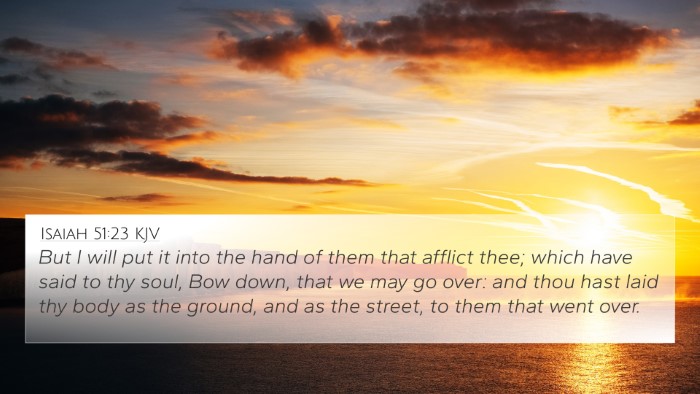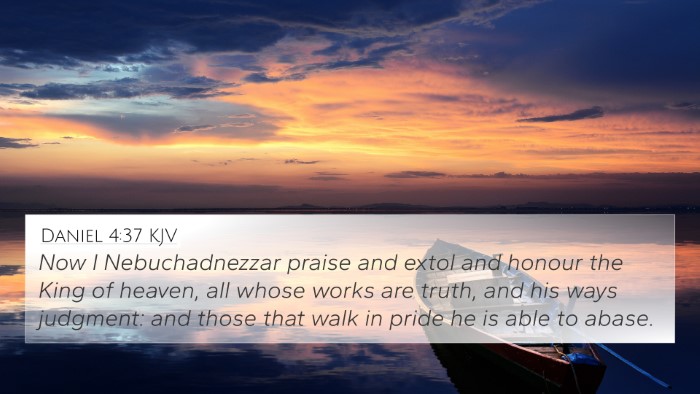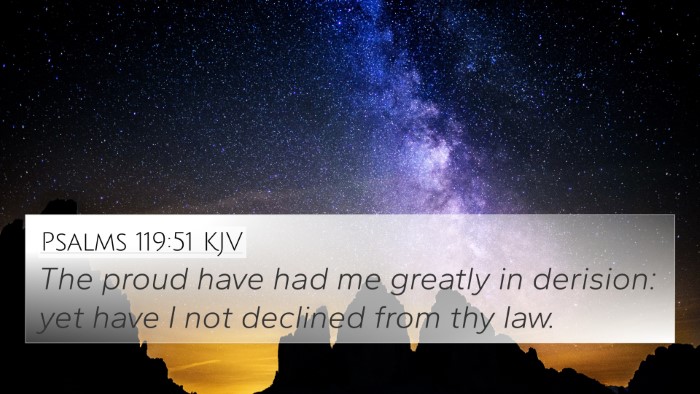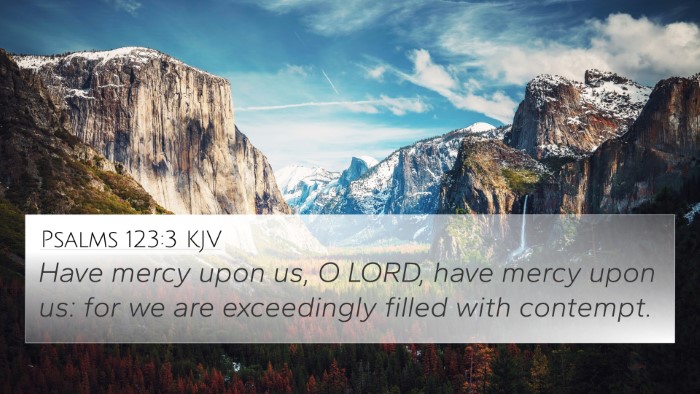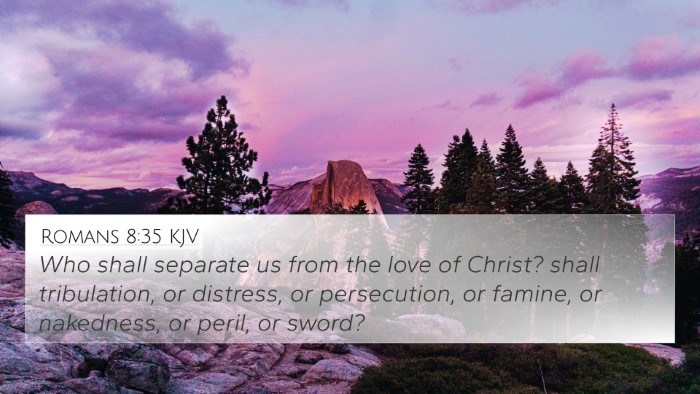Understanding Psalms 36:11
Psalms 36:11 states, "Let not the foot of pride come against me, and let not the hand of the wicked remove me." This verse encapsulates a plea for divine protection against arrogance and malevolence.
Verse Meaning and Commentary Insights
This verse reveals essential themes of humility and the desire for God's safeguarding against pride and evil. The cry for help indicates a recognition of the dangers posed by both external and internal struggles.
- Matthew Henry's Commentary:
Henry emphasizes that the "foot of pride" signifies the overwhelming nature of arrogance. It represents those who act with hubris and disregard for divine law. His commentary underlines the importance of humility before God and how pride can lead one astray.
- Albert Barnes' Notes:
Barnes focuses on the concept of divine protection. He interprets the "hand of the wicked" as a representation of oppression and wrongdoing that can harm the faithful. His insights suggest the necessity of trusting in God’s refuge during adversities.
- Adam Clarke's Commentary:
Clarke follows a thematic approach discussing the moral implications of pride and wickedness. His focus is on the believer's need for constant vigilance against these characteristics, highlighting that they can lead to one's downfall if not addressed by divine assistance.
Cross-Referencing Biblical Texts
Psalms 36:11 can be understood more fully by exploring related Bible verses. Here are some significant cross-references:
- Psalms 119:21: "You rebuke the arrogant, the accursed, who stray from your commands." - This verse draws a parallel to pride and God's disfavor towards the proud.
- Proverbs 16:18: "Pride goes before destruction, and a haughty spirit before a fall." - Illustrating the dangers of pride, this verse serves as a warning against arrogance.
- James 4:6: "But he gives more grace. Therefore it says, 'God opposes the proud, but gives grace to the humble.'" - This New Testament link emphasizes the recurring theme of humility versus pride.
- Matthew 23:12: "For whoever exalts himself will be humbled, and whoever humbles himself will be exalted." - A direct teaching of Jesus relating to humility and the dangers of pride.
- Job 30:20: "I cry out to you, O God, but you do not answer; I stand up, but you merely look at me." - This verse reflects a plea for help, similar to the cry found in Psalms 36:11.
- Proverbs 29:23: "A man's pride will bring him low, but a humble spirit will obtain honor." - This reinforces the idea that humility leads to exaltation while pride incurs downfall.
- Isaiah 2:12: "For the day of the LORD of hosts shall be upon every one that is proud and lofty, and upon every one that is lifted up; and he shall be brought low." - This prophetic warning aligns with the themes of pride in Psalms 36:11.
Thematic Connections between Bible Verses
The themes of pride and wickedness explored in Psalms 36:11 connect deeply with many other biblical texts, enriching our understanding through inter-Biblical dialogue.
Importance of Verse Connections
Understanding the connections between Bible verses can significantly enhance one's spiritual insights. Exploring themes such as pride, humility, and God's protection through diverse scriptures allows for a more comprehensive readability of Biblical messages.
Conclusion
Psalms 36:11 serves as a poignant reminder of the eternal struggle against pride and evil, invoking a desire for divine protection. By employing cross-referencing and understanding thematic relationships within scripture, we can gain deeper insights into our faith and relationship with God.
Using tools for Bible cross-referencing, such as concordances and guides, can greatly enhance your study. Consider exploring the contextual backgrounds and deeper meanings of similar verses to create a richer understanding of biblical themes.
